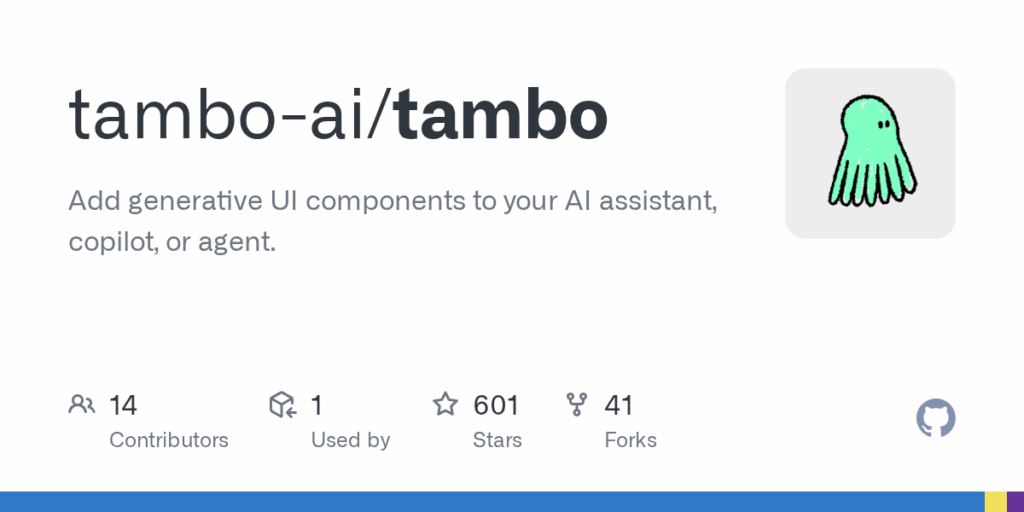tambo
Basic Information
Tambo AI is a React package and developer toolkit for building AI-powered applications that use generative UI, enabling users to interact with applications via natural language. It functions as a client-side registry of React components that an LLM can instantiate and manipulate. The repo provides patterns and runtime pieces for registering UI components with typed props schemas, exposing programmatic tools to the model, wrapping apps in a provider to connect to Tambo services, and optionally routing requests through MCP servers. It includes templates and example components to bootstrap chat apps with generative UX and points to a hosted backend that has been open-sourced. The package targets developers who want to let models render interactive React components and call typed tools within conversational interfaces.








